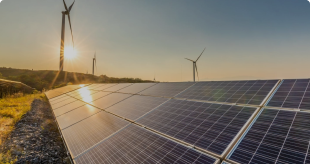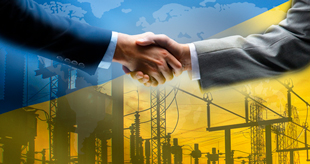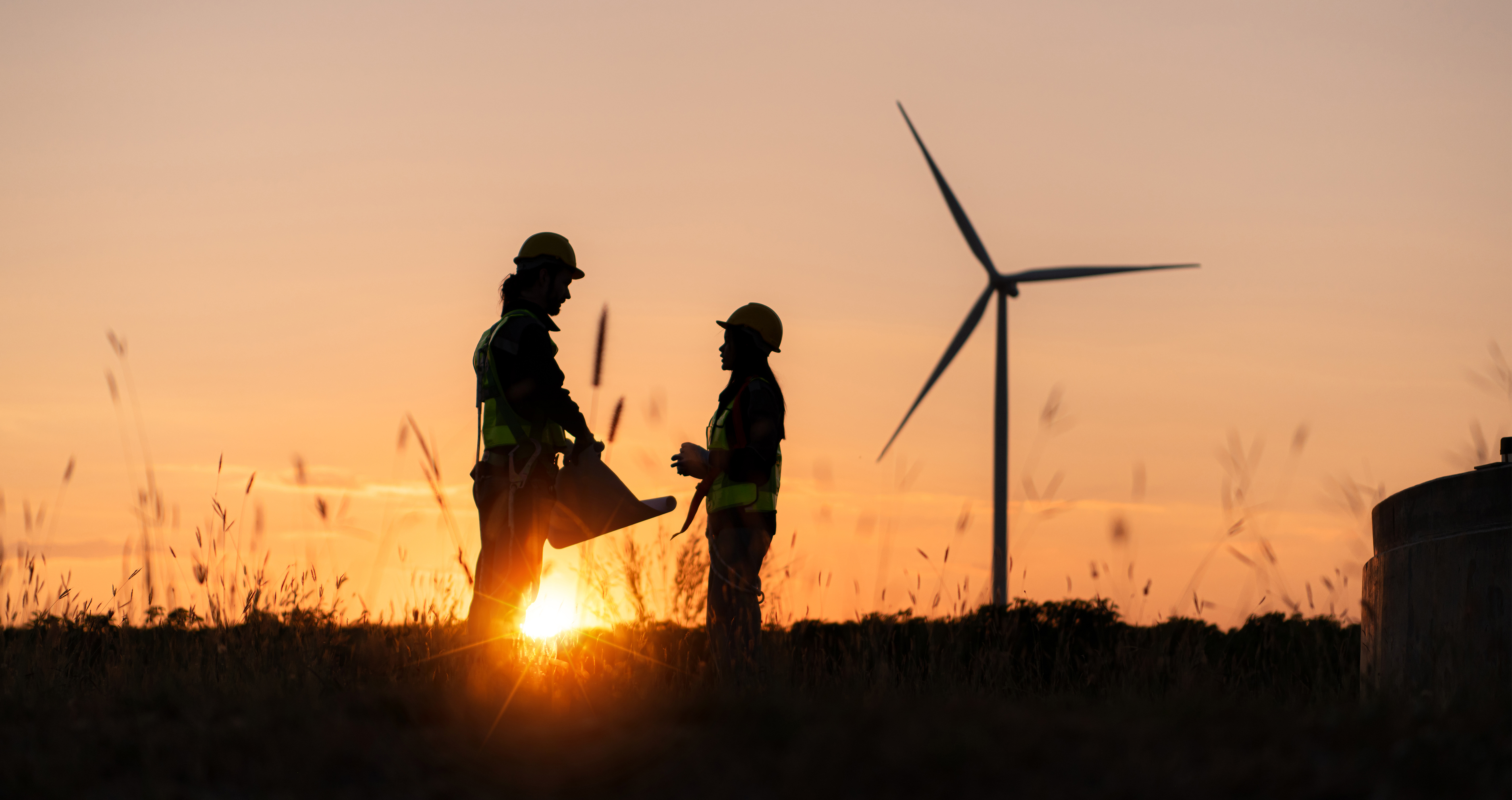The constant goal of cooperation between Ukraine and the EU in the energy sector remains the full integration of Ukraine’s and the EU’s energy markets.
Ukraine and the EU are committed to enhancing energy security, developing adequate infrastructure, strengthening market integration and regulatory alignment with the key elements of the EU acquis, promoting energy efficiency and the use of renewable energy sources, and striving to achieve a high level of nuclear safety.
Cooperation between Ukraine and the European Union in the energy sector also aims to improve energy security, competitiveness, and address energy poverty, which are essential for driving economic growth and making progress toward market integration.
Mutual cooperation includes, among other things, the following areas:
- implementation of the European Green Deal;
- implementation of energy strategies and policies, development and elaboration of forecasts and scenarios, and improvement of the statistical accounting system in the energy sector;
- creation of effective mechanisms for addressing potential energy crises in the spirit of solidarity;
- modernisation and strengthening of existing energy infrastructure of common interest, including power generation facilities, integrity, reliability and security of energy networks, and gradual integration of Ukraine’s power system into the European electricity network;
- development of competitive, transparent, and non-discriminatory energy markets based on EU rules and standards through regulatory reforms;
- strengthening long-term stability and security of energy trade on a mutually beneficial and non-discriminatory basis in accordance with international rules, including the 1994 Energy Charter Treaty, the WTO Agreement, and the Association Agreement;
- progress toward establishing an attractive and stable investment climate, and promoting mutual investment in the energy sector on a non-discriminatory basis;
- promotion of energy efficiency and energy saving, including through the development of energy efficiency policy, legislation, and regulatory frameworks to achieve significant progress in line with EU standards;
- development and support of renewable energy, taking into account principles of economic feasibility and environmental protection, as well as alternative fuels;
- scientific and technical cooperation and exchange of information for the development and improvement of technologies in the areas of energy production, transportation, supply, and end-use;
- cooperation within European and international standardisation bodies in the energy field.
Key documents defining cooperation include:
Energy issues are addressed in Chapter 11 “Trade-related energy” of Title IV, Chapter 1 “Cooperation in the field of energy, including nuclear energy” of Title V, as well as Annex XXVI “Cooperation in the field of energy, including nuclear energy” and Annex XXVII “Cooperation in the field of energy, including nuclear energy.”
• Treaty establishing the Energy Community
• Memorandum of Understanding on a Strategic Energy Partnership between Ukraine and the European Union together with the European Atomic Energy Community.
Bilateral and multilateral cooperation
Bilateral cooperation issues between Ukraine and the EU in the energy sector are discussed within the Association bodies: the Association Council, the Association Committee, and at the expert level — within Cluster 3 of the Subcommittee on Economy and Other Sectoral Cooperation of the Ukraine–EU Association Committee.
The last meeting of Cluster 3 took place on 25 January 2022.
Ukrainian state authorities and companies are involved in the work of specialised European associations:
• Gas Transmission System Operator of Ukraine (GTSOU) has been participating in the European Network of Transmission System Operators for Gas (ENTSO-G) since April 2020.
• State Nuclear Regulatory Inspectorate of Ukraine obtained observer status in the European Nuclear Safety Regulators Group (ENSREG) on 10 November 2020.
• NPC Ukrenergo gained observer status in the European Network of Transmission System Operators for Electricity (ENTSO-E) on 26 April 2022. Since 16 March 2022, Ukraine’s power system has been operating synchronously with the Continental European power system.
Ukraine is also actively involved in implementing the EU’s Eastern Partnership initiative and additional specially created cooperation mechanisms, including the Eastern Partnership Energy Panel and Platform 3 “Connectivity, Energy Efficiency, Environment, and Climate Change.”
Agenda topics within these mechanisms include: the future of the Eastern Partnership in the energy sector, development of interconnected energy systems, implementation of projects of common interest, and advancement of energy reforms.
Ukraine and the Republic of Poland are co-founders of the subgroup on hydrogen and renewable gases, which operates within Eastern Partnership Platform 3.
Specific issues regarding energy infrastructure improvement projects in the gas and electricity sectors are discussed within the Central and South Eastern Europe High Level Group (CESEC).
Energy Community
On 1 February 2011, Ukraine became a full member of the Energy Community, whose main objective is to create a single energy market and ensure systematic adaptation of European energy legislation by non-EU countries. Systematic work is carried out to prepare annual meetings of the Energy Community Ministerial Council, the body that, among other things, ensures implementation of the Treaty’s objectives, defines common policy principles, takes measures, and adopts procedural acts.
To form a coordinated energy policy within the Energy Community, the Ministerial Council, meetings of the Permanent High-Level Group, and other working groups are held annually on a permanent basis, in preparation for the Ministerial Council’s decisions.
In 2022, Ukraine chaired the Energy Community.
Ukraine continues to implement measures within its Energy Community membership, including:








